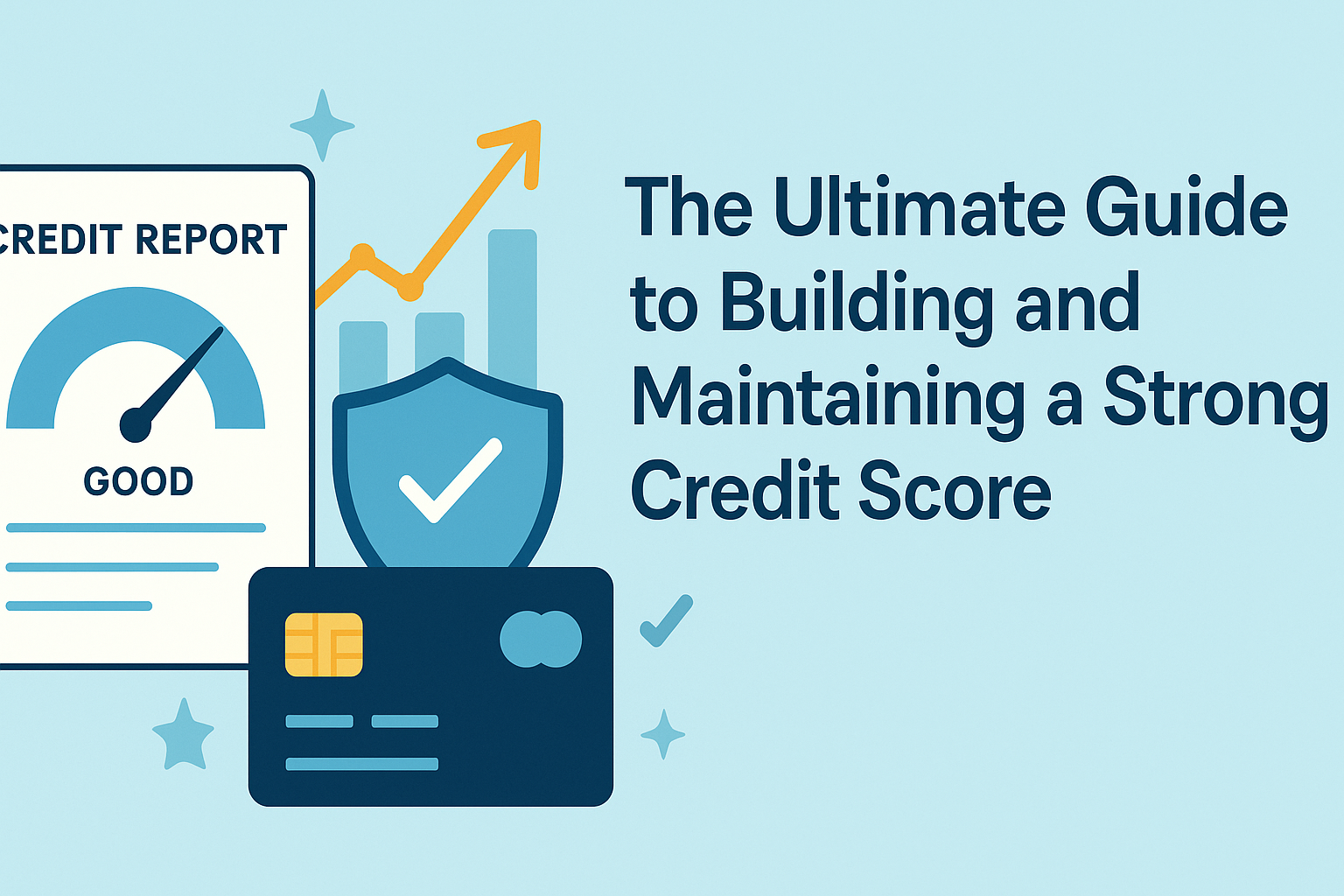Have You Ever Checked Your Credit Score… and Immediately Regretted It?
You know that gut-punch feeling? Like when you glance at your bank app after a reckless night of online shopping and see the damage in high-definition? Yeah—credit scores can do that too. And they matter. More than we’d like to admit.
A strong credit score is kind of like a secret VIP pass. You get lower interest rates (hello, extra vacation money), better loan approvals, and landlords might actually call you back. Even employers are creeping on your credit these days. It’s wild—but that’s the world we live in.
Still, despite how much power it holds, most of us don’t grow up learning how to build a good credit score. It’s not in the textbooks. And forget trying to Google it late at night after a declined card incident—been there.
So, this isn’t just a guide. It’s your financial survival map—messy coffee stains and all.
Table of Contents (Because Skimming is Self-Care)
- What Is a Credit Score? (And Why Should You Care?)
- How Your Credit Score Is Actually Calculated
- 7 Gritty Steps to Build Credit from Scratch (Or Rebuild It)
- Habits That Keep Your Credit Score Alive
- Mistakes That Will Destroy It—Slowly or All At Once
- FAQs People Are Too Embarrassed to Ask
- Your Credit Glow-Up Starts Now
What Is a Credit Score? (And Why Should You Care?)
Imagine your credit score as your financial reputation, except instead of rumors, it’s math. It’s a three-digit number (from 300 to 850) that tells lenders if they can trust you. Like, will you pay them back—or ghost them after the first date?
And no—it’s not just about loans. Your credit score can impact:
- Whether you get approved for that cute downtown apartment
- Your car insurance premium
- Job applications (yeah, really)
- Getting a decent phone plan without dropping a giant deposit
Long story short? If your credit’s wrecked, your options shrink. If it’s stellar, the world opens up.
How Credit Is Calculated (In a Way That Actually Makes Sense)
Here’s the breakdown—without the mind-numbing jargon.
| Factor | Weight | Real Talk Translation |
|---|---|---|
| Payment History | 35% | Do you pay on time or ghost your bills? |
| Credit Utilization | 30% | How much of your available credit do you use? |
| Length of Credit History | 15% | Are you new to this or a seasoned pro? |
| Credit Mix | 10% | Do you only have credit cards, or a spicy mix of loans too? |
| New Credit Inquiries | 10% | Are you applying for everything all at once? Chill. |
Tip: Use apps like Credit Karma or Experian. Not perfect—but they’ll flag red flags (or green lights).
7 Gritty Steps to Build Credit from Scratch (Or Rebuild It)
- Start by Checking Your Credit Report
- I once found a credit card I never opened listed under my name. Fraud? Maybe. Error? Probably. But if I hadn’t checked… ouch.
- Go to AnnualCreditReport.com. It’s free weekly. Seriously, do it.
- Open a Starter Card (Even If It’s Secured)
- A secured card is like training wheels—you put down a deposit, and that becomes your limit. Not glamorous, but it gets the job done.
- Set Bill Reminders—or Better, Automate Everything
- Your memory is not a strategy. Automate payments like your future depends on it—because it kinda does.
- Use Less Than 30% of Your Credit Limit
- Using 10% or less? Chef’s kiss. Maxing out your cards? Credit score says nope.
- Don’t Open Too Many Accounts
- It’s tempting, but every “hard inquiry” is a mini ding. It’s like speed bumps on your score.
- Mix It Up (Responsibly)
- Credit cards. Student loans. Auto loans. A healthy mix shows you can juggle different types of debt. Just don’t juggle too much.
- Leave Old Accounts Alone
- That card you haven’t used since 2017? Keep it open. It’s helping your credit age gracefully.
Habits That Keep Your Credit Score Alive
- Build a Budget You Actually Stick To You don’t need a color-coded Excel sheet (unless that’s your jam). Just know what’s coming in and what’s flying out.
- Create an Emergency Fund Think of it as financial bubble wrap. So when life throws a tantrum (and it will), you don’t swipe your way into debt.
- Use Credit Wisely No, you don’t need that $200 espresso machine because it’s “on sale.” Swipe with purpose. Pay in full.
- Monitor Your Score Like a Stalker Okay not that creepy—but keep tabs. Sign up for alerts. Celebrate small wins.
Common Credit Mistakes That Hurt More Than Heartbreak
- Skipping a payment “just this once”
- Living off your cards like you’re starring in a Netflix docuseries
- Applying for five store cards in one mall trip
- Never reading your credit report because ignorance is bliss (it’s not)
FAQs People Are Too Embarrassed to Ask
How long does it take to build good credit?
From scratch? 3-6 months for a basic score, but a solid one (700+)? Could take a year or more. It’s like growing out bangs. Takes patience.
Fastest way to improve credit?
Pay down debt. Immediately. Keep balances low. Remove errors. And stop applying for new credit unless necessary.
Does checking my credit hurt it?
Nope—not if you’re doing a “soft” check (like when you peek through apps). Only “hard” pulls hurt—and only a little.
Can I build credit without a credit card?
Yes, but it’s harder. Consider credit builder loans, rent-reporting tools, or being an authorized user on someone’s card (with their permission, duh).
Your Credit Glow-Up Starts Now
Look—credit can feel like an invisible game with unfair rules. But once you learn the system, you get to play it.
Start with one step. One change. One bill paid on time. That’s how empires (or at least financial peace) are built.
And if you’ve already messed it up before? Welcome to the club. It’s never too late to fix it. I promise.
So—what’s the first move you’re going to make?
Tell me in the comments. Or yell it into the void. Either way, make it count.









